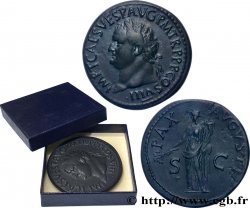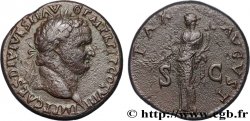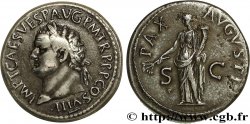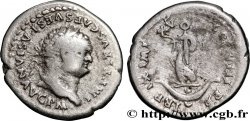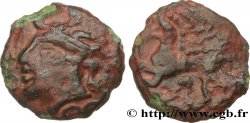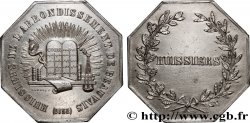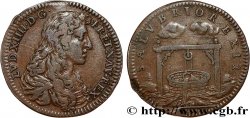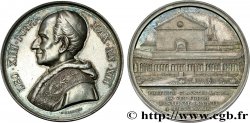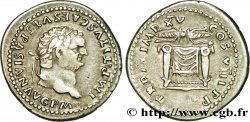v38_0509 - TITUS Denier
MONNAIES 38 (2009)
Starting price : 150.00 €
Estimate : 250.00 €
Realised price : 228.00 €
Number of bids : 2
Maximum bid : 430.00 €
Starting price : 150.00 €
Estimate : 250.00 €
Realised price : 228.00 €
Number of bids : 2
Maximum bid : 430.00 €
Type : Denier
Date: 1er janvier - 30 juin
Date: 80
Mint name / Town : Roma
Metal : silver
Millesimal fineness : 900 ‰
Diameter : 19 mm
Orientation dies : 6 h.
Weight : 3,40 g.
Rarity : R1
Officine: 5e
Emission: 1re
Coments on the condition:
Exemplaire sur un flan parfaitement centré des deux côtés avec les grènetis complets. Très beau portrait. Revers de haut relief, bien venu à la frappe. Jolie patine grise superficielle avec des reflets dorés
Catalogue references :
Obverse
Obverse legend : IMP TITVS CAES VESPASIANVS AVG P M.
Obverse description : Tête laurée de Titus à droite (O*).
Obverse translation : “Imperator Titus Cæsar Vespasianus Augustus Pontifex Maximus”, (L’empereur Titus césar Vespasien auguste grand pontife).
Reverse
Reverse legend : TR P IX IMP XV - COS VIII P P.
Reverse description : Foudre posé sur un trône.
Reverse translation : “Tribunicia Potestate nonum Imperator quintum decimum Consul octavum Pater Patriæ”, (Revêtu de la neuvième puissance tribunitienne de la quinzième salutation impériale consul pour la huitième fois père de la patrie).
Commentary
Ruban de type 2. Il existe au moins trois types de représentations différentes pour le trône : surmonté d’un foudre, d’un dossier circulaire ou d’un dossier triangulaire. Notre denier appartient à la première combinaison. Parfois, le foudre est ailé ce qui n’est pas le cas de notre exemplaire. D’autre part, toutes les marques numérales sont surmontées d’un tilde abréviatif. Un tissu est posé sur le trône, il pourrait s’agir du paludamentum (manteau de pourpre rouge du général victorieux, puis de l’empereur).
Ribbon type 2. There are at least three different types of representations for the throne: surmounted by a thunderbolt, a circular backrest, or a triangular backrest. Our denarius belongs to the first combination. Sometimes, the thunderbolt is winged, which is not the case with our example. Furthermore, all the numeral marks are surmounted by an abbreviative tilde. A cloth is placed on the throne; it could be the paludamentum (the red-purple cloak of the victorious general, then of the emperor).
Ribbon type 2. There are at least three different types of representations for the throne: surmounted by a thunderbolt, a circular backrest, or a triangular backrest. Our denarius belongs to the first combination. Sometimes, the thunderbolt is winged, which is not the case with our example. Furthermore, all the numeral marks are surmounted by an abbreviative tilde. A cloth is placed on the throne; it could be the paludamentum (the red-purple cloak of the victorious general, then of the emperor).








 Report a mistake
Report a mistake Print the page
Print the page Share my selection
Share my selection Ask a question
Ask a question Consign / sell
Consign / sell
 Full data
Full data